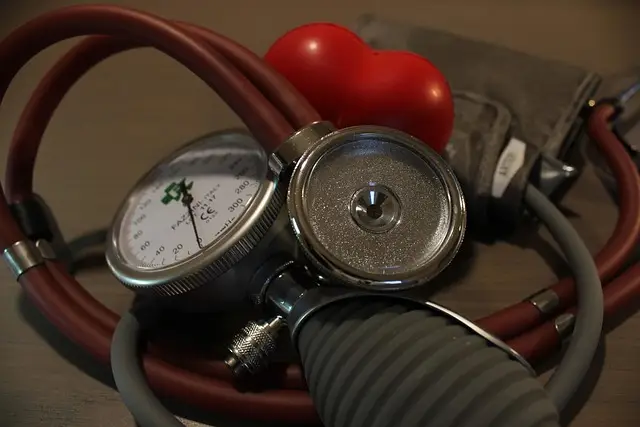💡 Introduction: Why Heart Disease Deserves a Female-Focused Lens
When you think of heart disease, you might imagine an older man clutching his chest—but here’s the shocking truth: Heart disease is the No. 1 cause of death in women globally, killing more women than all forms of cancer combined.
And yet, women are often underdiagnosed, undertreated, and misunderstood when it comes to heart-related conditions. From unique symptoms to gender-specific risks, understanding heart disease in women is essential for saving lives.
This guide will help women recognize symptoms, understand their risk factors, and take powerful steps toward prevention. Let’s protect your most vital organ—your heart ❤️.
👩⚕️ What Makes Women’s Heart Health Different?
Biological and hormonal differences can impact the way heart disease shows up in women:
🧬 1. Hormonal Influence
Estrogen offers some heart protection before menopause. After menopause, declining estrogen levels can lead to stiffening of the arteries, rising cholesterol, and increased blood pressure.
👶 2. Pregnancy-Related Risk Factors
Complications such as:
- Preeclampsia
- Gestational diabetes
- Hypertension during pregnancy
…are not just short-term issues. They increase the risk of heart disease later in life, even decades afterward.
🔬 3. Smaller Blood Vessels
Women are more prone to microvascular disease, where small blood vessels become damaged. This may not show up on a traditional angiogram but can cause angina and heart attacks.
⚠️ Symptoms: What a Heart Attack Feels Like in Women
Men typically feel sharp, crushing chest pain, but women may experience more vague or unusual symptoms.
🚩 Common Symptoms in Women:
- Chest pain or pressure (may feel like fullness or squeezing)
- Shortness of breath—even at rest or during sleep
- Pain in neck, jaw, back, or upper abdomen
- Nausea, indigestion, or vomiting
- Dizziness or lightheadedness
- Unexplained fatigue (especially if it’s new or severe)
- Cold sweats
⛑️ Tip: If you’re unsure, err on the side of caution and call emergency services. Women often delay treatment, which can be fatal.
🩺 Risk Factors for Heart Disease in Women
While some risk factors are universal, certain ones are more common or impactful in women.
✅ Modifiable Risk Factors:
- High blood pressure
- High LDL (bad) cholesterol
- Smoking 🚭
- Obesity
- Sedentary lifestyle
- Poor diet
- Excessive alcohol use
- Chronic stress
⚠️ Female-Specific Risk Factors:
- Early menopause (before age 40)
- Polycystic Ovary Syndrome (PCOS)
- Autoimmune diseases (e.g., lupus, rheumatoid arthritis)
- Pregnancy complications
- Hormone replacement therapy (HRT) in some cases
🛡️ 7 Heart-Healthy Habits Every Woman Should Practice
🥗 1. Nourish Your Heart
Adopt a Mediterranean-style diet rich in:
- Fruits 🍎
- Vegetables 🥦
- Whole grains
- Nuts & seeds
- Olive oil
- Lean protein like fish and legumes
Avoid processed foods, sugary snacks, and trans fats.
🏃♀️ 2. Move Your Body
Get at least 150 minutes of moderate aerobic activity weekly. Try:
- Walking 🚶♀️
- Dancing 💃
- Cycling 🚴
- Yoga 🧘♀️
Strength training twice a week helps too.
💧 3. Stay Hydrated
Good hydration keeps your blood flowing and heart working efficiently. Aim for 6–8 glasses of water daily 💧.
😌 4. Manage Stress
Practice:
- Deep breathing
- Journaling
- Gratitude
- Therapy or counseling
Chronic stress contributes to high blood pressure and inflammation.
🩺 5. Regular Health Checkups
Know your numbers:
- Blood pressure
- Cholesterol
- Blood sugar
- Body Mass Index (BMI)
Ask your doctor about coronary calcium scoring or stress testing if you have high risk factors.
🚭 6. Avoid Smoking and Limit Alcohol
Smoking increases heart attack risk by 2–4 times. Even secondhand smoke is dangerous.
Stick to no more than 1 alcoholic drink/day, if at all.
🧬 7. Know Your Family History
If your mother or sister had heart disease before age 65, your risk is higher. This should inform early screening and lifestyle adjustments.
🧠 The Mental Health Connection
Depression and anxiety are more common in women and directly affect heart health. Depression can increase the risk of heart disease and also make it harder to recover after a heart attack.
Don’t ignore mental health—get help when needed. A healthy heart and a healthy mind go hand in hand 🧘♀️🫀.
💥 Myth-Busting: What You May Not Know
🚫 “I’m too young to worry about heart disease.”
Heart disease can strike women in their 30s and 40s—especially if risk factors like smoking or obesity are present.
🚫 “It’s only a man’s disease.”
Women have a higher lifetime risk of dying from heart disease than breast cancer.
🚫 “If I had heart disease, I’d know.”
Not necessarily—80% of heart disease is silent until a major event happens.
🧭 Final Thoughts: Advocate for Your Heart
Women’s heart health has long been misunderstood—but that is changing. With education, advocacy, and lifestyle changes, we can turn the tide on this silent killer.
💖 Your heart matters. Prioritize it. Talk to your doctor. Encourage the women around you to do the same.
Together, we’re not just surviving—we’re thriving. 🩷






